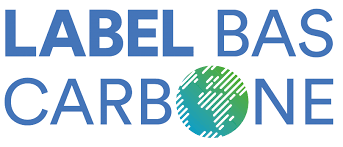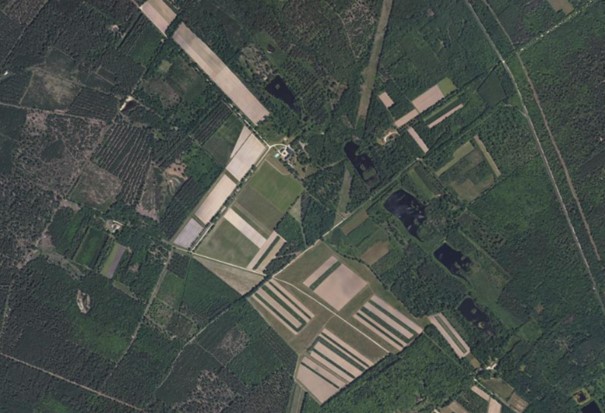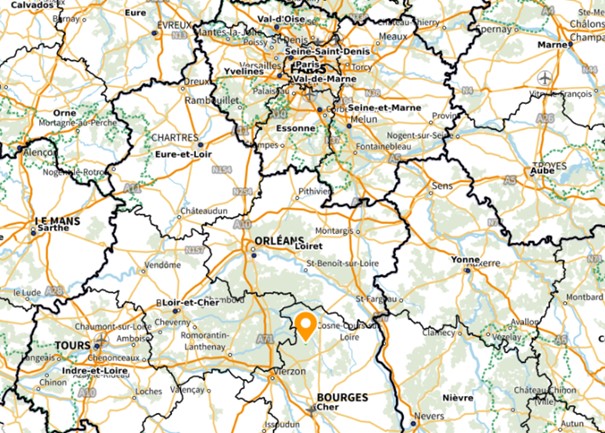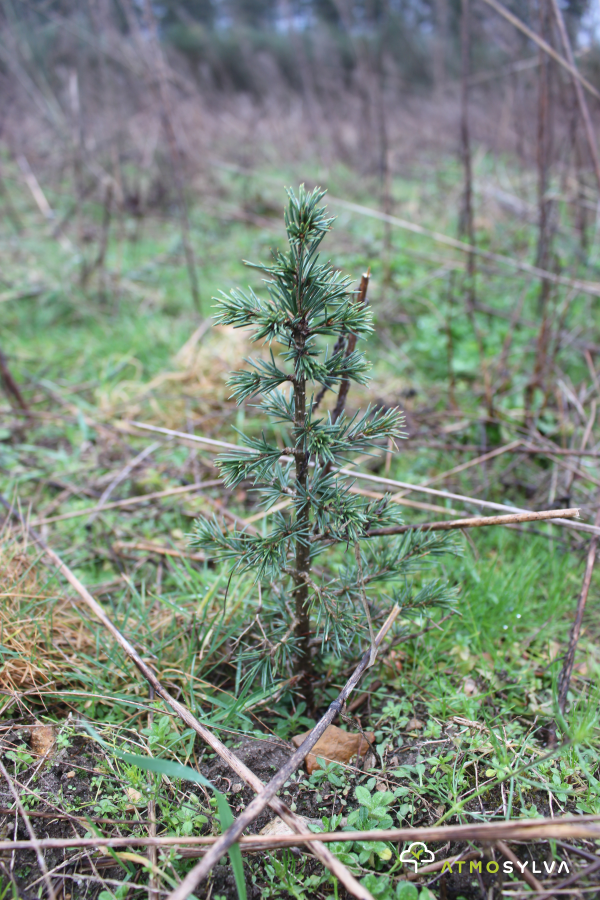Afforestation Presly

Green Yellow
Green Yellow has already planted 960 trees on the Presly project!
This planting will absorb 101 tonnes of CO2 once the audit has been completed.
Label Bas Carbone certified project
The project is an afforestation of species adapted to the soil and climate, comprising a plantation of Atlas Cedar combined with forest fruit trees, as diversification species. Planting a small area of Atlas cadar will make it possible to test this species in the Cher department and gather data for adapting to climate change.

Presly, Cher (15), in the extension of the nearby wooded area
0.6 ha planted
Atlas cedar, Wild cherry, Wild pear, Crab apple
960 trees


The project is located in Presly in the Cher departement, in the South-east of the Centre Val-de-Loire.
Forests play an important role in this predominantly agricultural region, particularly in the Cher department, where they account for 25% of the total forest cover. Mainly deciduous, the forest is also represented by pine in the Solognot region, where the soils are sandier and poorer.
This is the case for our project at Presly, located in the south-eastern part of the Sologne region, at the heart of the Sologne natural region, also known as dry Sologne.

Green Yellow has already planted 960 trees on the Presly project!
This planting will absorb 101 tonnes of CO2 once the audit has been completed.
The Presly project is part of the afforestation method of the Low Carbon Label, a certification examined and issued by the Ministry of Ecological and Solidarity Transition.
The wooded parcel will be included in a sustainable management document: the owner has set up a Simple Management Plan, approved by a public body, the Centre National de la Propriété Forestière (CNPF)

The Atlas cedar is native to the mountains of North Africa, and was introduced to France in the middle of the 19th century in the low and medium mountains of the south. As temperatures rose rapidly, it was planted in new regions. Its frugality, drought resistance and ability to withstand irregular water conditions make it an ideal candidate for soils with low water retention and relatively poor soil.
The project includes the planting of diversification species: Wild cherry , Wild pear and Crab apple. These are forest fruit trees, which will help to improve the landscape by planting them at the edge of the plot. These species are also of great interest to wildlife, thanks to their melliferous flowers and fruit.
Thas Atlas cedar will be planted in a small area, which is a good way of testing the species in the region, without altering the landscape or the environment. In addition, growth data will be collected during the life of the projet, to gain a better understanding of the behaviour of this species in the Cher region.
The forestry sector encompasses a wide range of occupations that cannot be relocated: forestry experts and managers, tree nurseries, forestry work companies (lumberjacks and loggers). The wood processing industry in France also encompasses a wide range of trades right through to the manufacture of the finished product.